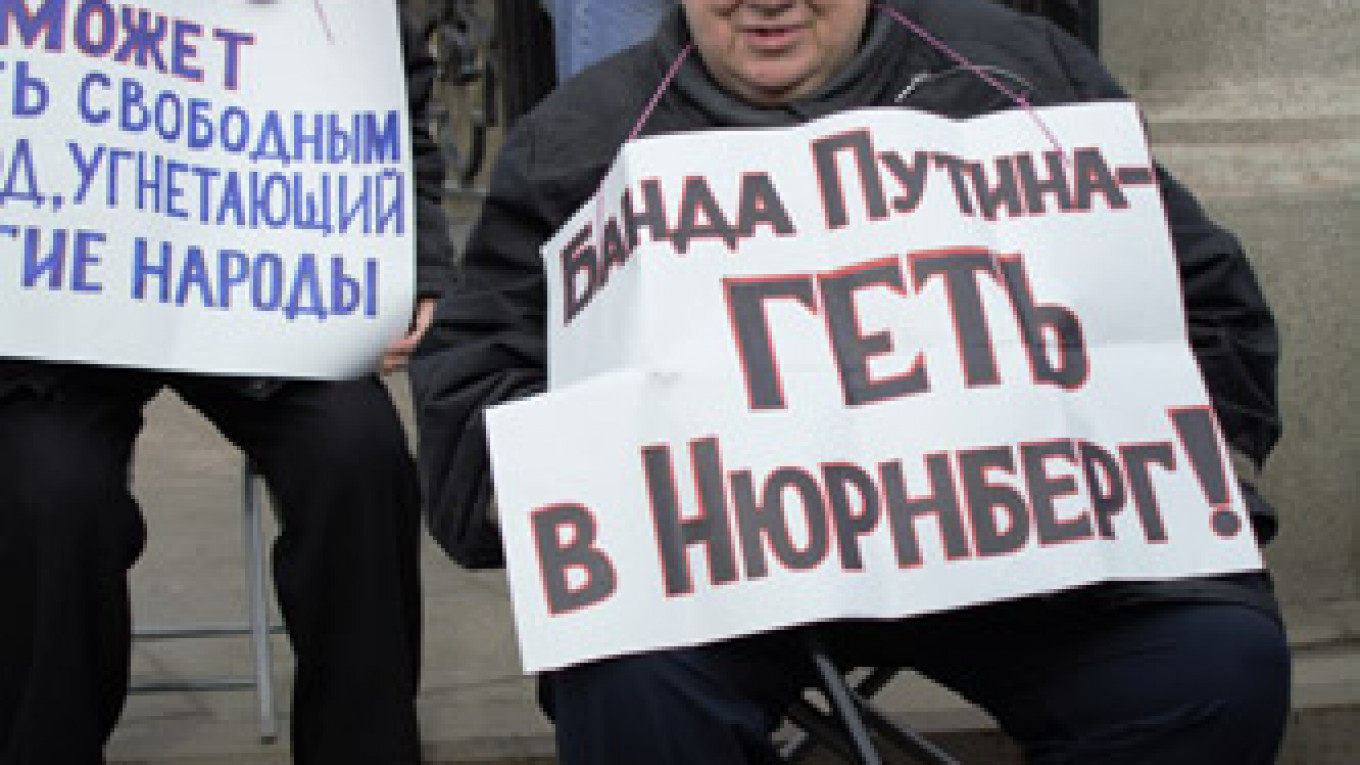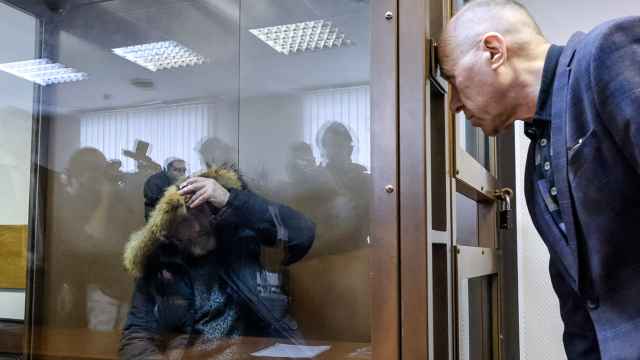Valeria Novodvorskaya, a long-standing Russian human rights activist and founder of Russia's Democratic Union Party, died of natural causes at a Moscow hospital on Saturday.
Novodvorskaya, 64, died at Moscow's Hospital No. 13 of toxic shock linked to a chronic illness, ITAR-Tass reported.
She spent years protesting against the Soviet regime and remained a key opposition figure and staunch critic of the Kremlin until her death.
In a statement issued Sunday, Prime Minister Dmitry Medvedev joined President Vladimir Putin in expressing his condolences to Novodvorskaya's family and friends.
"She was a bright, extraordinary person, a talented politician and publicist," Medvedev's statement said. "She did a great deal for democracy in our country, actively engaged in human rights work and was never afraid to defend her point of view. This earned her the respect of her supporters and opponents."
Born in the Belarussian Soviet Republic in 1950, Novodvorskaya first became involved in opposition activities at the age of 19, when she formed an underground student association at the Moscow State Linguistics University.
In protest of the Soviet Union's invasion of Czechoslovakia, the young Novodvorskaya distributed flyers that condemned the Communist Party at the State Kremlin Palace in 1969.
"She was not only a thinker," said fellow activist Lev Ponomaryov, who serves as the director of Russian NGO For Human Rights. "She was also a very active individual who applied her ideas and was not afraid to express her opinion. She ultimately suffered a lot because of this."
Novodvorskaya's protest activities led her to become a victim of punitive psychiatry. In 1969, she was arrested for "anti-Soviet agitation and propaganda" and committed to a psychiatric hospital in Kazan. She remained at the institution for two years.
During the next decade, Novodvorskaya attempted to create an underground political party to counter the communist state ideology. She was arrested and readmitted to psychiatric treatment facilities on numerous occasions.
Between 1987 and 1991, Novodvorskaya founded the Democratic Union Party and organized a series of unsanctioned protests during which she was arrested 17 times.
"She had some radical points of view that could be seen as eccentric," Ponomaryov told The Moscow Times on Sunday. "She sometimes shocked people. She was often ridiculed and insulted by those who did not support her ideas, but she didn't care. She thought it was important to express her opinion to all possible audiences."
Novodvorskaya, who authored several books, focused on writing columns and editorials in the 2000s. Novodvorskaya was critical of Russian domestic and foreign policy, which earned her harsh criticism from Kremlin supporters.
She was criticized particularly harshly for condemning the presence of Russian troops in Chechnya, siding with Georgia during the Russian-Georgian war of 2008 and speaking out against Russia's annexation of Crimea.
See also:
Former Georgian President Eduard Shevardnadze Dies at 86
Contact the author at [email protected]
A Message from The Moscow Times:
Dear readers,
We are facing unprecedented challenges. Russia's Prosecutor General's Office has designated The Moscow Times as an "undesirable" organization, criminalizing our work and putting our staff at risk of prosecution. This follows our earlier unjust labeling as a "foreign agent."
These actions are direct attempts to silence independent journalism in Russia. The authorities claim our work "discredits the decisions of the Russian leadership." We see things differently: we strive to provide accurate, unbiased reporting on Russia.
We, the journalists of The Moscow Times, refuse to be silenced. But to continue our work, we need your help.
Your support, no matter how small, makes a world of difference. If you can, please support us monthly starting from just $2. It's quick to set up, and every contribution makes a significant impact.
By supporting The Moscow Times, you're defending open, independent journalism in the face of repression. Thank you for standing with us.
Remind me later.






